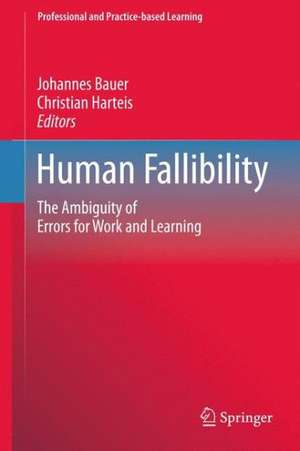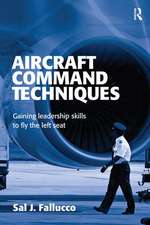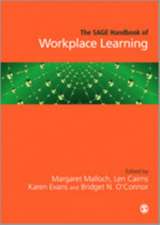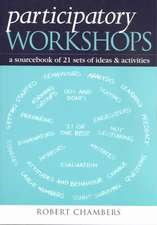Human Fallibility: The Ambiguity of Errors for Work and Learning: Professional and Practice-based Learning, cartea 6
Editat de Johannes Bauer, Christian Harteisen Limba Engleză Paperback – 13 apr 2014
| Toate formatele și edițiile | Preț | Express |
|---|---|---|
| Paperback (1) | 560.55 lei 38-44 zile | |
| SPRINGER NETHERLANDS – 13 apr 2014 | 560.55 lei 38-44 zile | |
| Hardback (1) | 644.95 lei 6-8 săpt. | |
| SPRINGER NETHERLANDS – 18 mar 2012 | 644.95 lei 6-8 săpt. |
Din seria Professional and Practice-based Learning
- 18%
 Preț: 887.24 lei
Preț: 887.24 lei - 18%
 Preț: 891.48 lei
Preț: 891.48 lei - 18%
 Preț: 950.52 lei
Preț: 950.52 lei - 18%
 Preț: 950.03 lei
Preț: 950.03 lei - 18%
 Preț: 1112.30 lei
Preț: 1112.30 lei - 24%
 Preț: 836.00 lei
Preț: 836.00 lei - 15%
 Preț: 641.85 lei
Preț: 641.85 lei -
 Preț: 394.87 lei
Preț: 394.87 lei - 15%
 Preț: 651.19 lei
Preț: 651.19 lei -
 Preț: 394.51 lei
Preț: 394.51 lei - 18%
 Preț: 1240.30 lei
Preț: 1240.30 lei - 15%
 Preț: 651.84 lei
Preț: 651.84 lei - 15%
 Preț: 649.39 lei
Preț: 649.39 lei - 15%
 Preț: 700.75 lei
Preț: 700.75 lei - 18%
 Preț: 733.96 lei
Preț: 733.96 lei - 15%
 Preț: 648.89 lei
Preț: 648.89 lei - 18%
 Preț: 943.57 lei
Preț: 943.57 lei - 18%
 Preț: 1014.89 lei
Preț: 1014.89 lei - 18%
 Preț: 784.61 lei
Preț: 784.61 lei -
 Preț: 391.22 lei
Preț: 391.22 lei - 15%
 Preț: 647.08 lei
Preț: 647.08 lei - 15%
 Preț: 700.29 lei
Preț: 700.29 lei - 15%
 Preț: 652.64 lei
Preț: 652.64 lei - 18%
 Preț: 886.62 lei
Preț: 886.62 lei - 15%
 Preț: 637.28 lei
Preț: 637.28 lei - 18%
 Preț: 946.41 lei
Preț: 946.41 lei - 18%
 Preț: 939.33 lei
Preț: 939.33 lei - 24%
 Preț: 864.87 lei
Preț: 864.87 lei - 18%
 Preț: 960.78 lei
Preț: 960.78 lei - 15%
 Preț: 635.31 lei
Preț: 635.31 lei
Preț: 560.55 lei
Preț vechi: 700.70 lei
-20% Nou
Puncte Express: 841
Preț estimativ în valută:
107.28€ • 111.58$ • 88.56£
107.28€ • 111.58$ • 88.56£
Carte tipărită la comandă
Livrare economică 11-17 aprilie
Preluare comenzi: 021 569.72.76
Specificații
ISBN-13: 9789400792449
ISBN-10: 9400792441
Pagini: 296
Ilustrații: XIV, 282 p.
Dimensiuni: 155 x 235 x 16 mm
Greutate: 0.42 kg
Ediția:2012
Editura: SPRINGER NETHERLANDS
Colecția Springer
Seria Professional and Practice-based Learning
Locul publicării:Dordrecht, Netherlands
ISBN-10: 9400792441
Pagini: 296
Ilustrații: XIV, 282 p.
Dimensiuni: 155 x 235 x 16 mm
Greutate: 0.42 kg
Ediția:2012
Editura: SPRINGER NETHERLANDS
Colecția Springer
Seria Professional and Practice-based Learning
Locul publicării:Dordrecht, Netherlands
Public țintă
ResearchCuprins
The Ambiguity of Errors for Work and Learning: Introduction to the Volume Johannes Bauer and Christian Harteis.- Part A: Errors, their Learning Potential, and the Processes of Learning from Errors.- Errors and Learning from Errors at Work Stephen Billett.- Tracing Outcomes of Learning from Errors on the Level of Knowledge Martin Gartmeier and Elke Schüttelkopf .- Towards a Theory of Negative Knowledge (NK): Almost-Mistakes as Drivers of Episodic Memory Amplification Fritz Oser, Catherine Näpflin, Christine Hofer, and Philipp Aerni.- Professional knowledge is (also) knowledge about errors Hans Gruber and Michael Mohe.- Part B: Methodological strategies.- Research on Errors and Learning from them: Methodological Perspectives Klaus Mehl and Theo Wehner.- Measuring Organizational Climate for Learning from Errors at Work Daniel Putz, Jan Schilling, and Annette Kluge.- Part C: Learning from Errors in the Professions.- Innovation by Learning from Mistakes: The Relationships between Team Characteristics, Error Orientation, and Team Innovation Marianne van Woerkom.- Error Orientation and Intuitive Decision Making: Results of an Exploratory Study in the Domain of Emergency Medicine Christian Harteis and Franziska Frost.- Learning from Errors in the Professions: Empirical Findings on Processes, Outcomes, and Supportive Conditions Johannes Bauer, Martin Gartmeier, and Christian Harteis.- Part D: Enabling Learning from Errors.- Dealing Effectively with Errors during Training Nina Keith.- Reflecting on Learning from Errors in School Instruction – Findings and Suggestions from a Swiss-German Video Study Inger Marie Dalehefte, Manfred Prenzel, and Tina Seidel.-Learning from Errors: The Role of After-Event Reviews Shmuel Ellis.- Incident Reporting Systems in Hospitals: How does Learning Occur Using this Organizational Instrument? Yvonne Pfeiffer and Theo Wehner.- Conclusion.- Research on Human Fallibility and Learning from Errors at Work: Challenges for Theory, Research, and Practice Christian Harteis, Johannes Bauer, and Helmut Heid.Part B: Methodological strategies.- Research on Errors and Learning from them: Methodological Perspectives Klaus Mehl and Theo Wehner.- Measuring Organizational Climate for Learning from Errors at Work Daniel Putz, Jan Schilling, and Annette Kluge.- Part C: Learning from Errors in the Professions.- Innovation by Learning from Mistakes: The Relationships between Team Characteristics, Error Orientation, and Team Innovation Marianne van Woerkom.- Error Orientation and Intuitive Decision Making: Results of an Exploratory Study in the Domain of Emergency Medicine Christian Harteis and Franziska Frost.- Learning from Errors in the Professions: Empirical Findings on Processes, Outcomes, and Supportive Conditions Johannes Bauer, Martin Gartmeier, and Christian Harteis.- Part D: Enabling Learning from Errors.- Dealing Effectively with Errors during Training Nina Keith.- Reflecting on Learning from Errors in School Instruction – Findings and Suggestions from a Swiss-German Video Study Inger Marie Dalehefte, Manfred Prenzel, and Tina Seidel.- Learning from Errors: The Role of After-Event Reviews Shmuel Ellis.- Incident Reporting Systems in Hospitals: How does Learning Occur Using this Organizational Instrument? Yvonne Pfeiffer and Theo Wehner.- Conclusion.- Research on Human Fallibility and Learning from Errors at Work: Challenges forTheory, Research, and Practice Christian Harteis, Johannes Bauer, and Helmut Heid.
Recenzii
From the book reviews:
“‘Human Fallibility’ offers an up-to-date compilation of varying perspectives, methods, and results of the relations between errors, work, and learning in several contexts. … the editors deliver an up-to-date overview of a wide range of issues and methods related to learning from errors. … The book also reveals several ways of furthering the development of the field. … ‘Human Fallibility’ offers more than just a starting point.” (Andreas Rausch, Vacations and Learning, Vol. 7, 2014)
“‘Human Fallibility’ offers an up-to-date compilation of varying perspectives, methods, and results of the relations between errors, work, and learning in several contexts. … the editors deliver an up-to-date overview of a wide range of issues and methods related to learning from errors. … The book also reveals several ways of furthering the development of the field. … ‘Human Fallibility’ offers more than just a starting point.” (Andreas Rausch, Vacations and Learning, Vol. 7, 2014)
Textul de pe ultima copertă
A curious ambiguity surrounds errors in professional working contexts: they must be avoided in case they lead to adverse (and potentially disastrous) results, yet they also hold the key to improving our knowledge and procedures. In a further irony, it seems that a prerequisite for circumventing errors is our remaining open to their potential occurrence and learning from them when they do happen. This volume, the first to integrate interdisciplinary perspectives on learning from errors at work, presents theoretical concepts and empirical evidence in an attempt to establish under what conditions professionals deal with errors at work productively—in other words, learn the lessons they contain. By drawing upon and combining cognitive and action-oriented approaches to human error with theories of adult, professional, and workplace learning this book provides valuable insights which can be applied by workers and professionals. It includes systematic theoretical frameworks for explaining learning from errors in daily working life, methodologies and research instruments that facilitate the measurement of that learning, and empirical studies that investigate relevant determinants of learning from errors in different professions. Written by an international group of distinguished researchers from various disciplines, the chapters paint a comprehensive picture of the current state of the art in research on human fallibility and (learning from) errors at work.
Caracteristici
First book that integrates interdisciplinary perspectives on learning from errors at work Covers learning from errors in non-formal work settings as well as in education and professional training in many relevant domains Presents theoretical frameworks for modelling learning from errors and its outcomes, examples of practicable research methods, and empirical evidence that may guide practitioners Written by an international group of experts on human error and learning from errors in professional contexts











